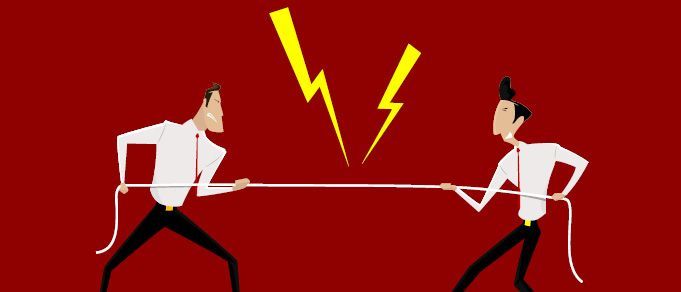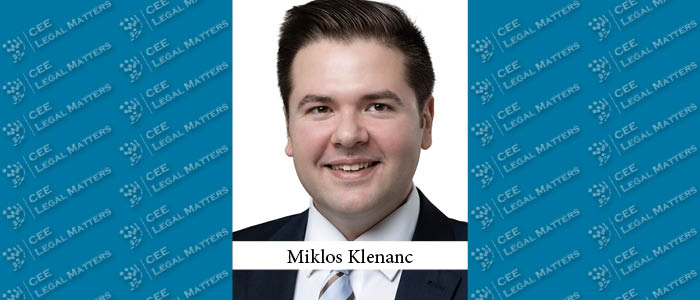The Serbian Constitutional Court Rejects Voting Limitations Adopted by Belgrade Bar Association
Bar Associations in the former Yugoslavia continue to struggle to accommodate the commercial needs of modern law firms into their traditional models, particularly in the forms of advertising/marketing, the rapid growth of business law firms, and the entrance into their markets of foreign law firms. This struggle, in the past year or so, has played out most significantly in Serbia – and most particularly (and controversially) in the Belgrade Bar Association, which on September 24, 2016, in an attempt to limit the power of larger firms, adopted a new bylaw taking voting and participation rights away from lawyers employed by law firms.
That bylaw was immediately challenged by several leading Serbian firms, and on November 24, 2016, the Constitutional Court of Serbia issued an injunction preventing the implementation of the controversial articles pending its final decision on the matter.
On March 2, 2017, that final decision came down, as the Constitutional Court ruled that the voting limitation was unconstitutional (see Box A). Elections for the Bar’s Board, which were repeatedly postponed pending the result have now been scheduled, and we reached out to several candidates for the Bar’s presidency for their positions on the controversy and the underlying issues.
Background
The purpose of the controversial voting limitation is not disputed: Tt was designed specifically to counteract the rise of modern law firms. According to Belgrade Bar Association Board Member Aleksandar Cvejic, who spoke to CEE Legal Matters about the limitation when it was still in draft form, “we simply don’t want to see a Bar that is owned by a handful of firms.” According to Cvejic, “the voting limitation is meant to counterbalance the risk that huge law offices might privatize the board and end up in a situation where a few law offices retain power within it. They have 200-300 lawyers who can vote, which amounts to a considerable say in terms of who ends up in the Board, which could be problematic.” In the view of Cvejic, lawyers working under employment contracts at firms are not entitled to full voting rights: “Our position is that if lawyers are Partners, that is fine, but if they are not and are simply employed by a firm, they are not independent, and we believe that is essential to the vote.”
Unsurprisingly, many prominent Serbian law firms disagreed with the rationale put forward by Cvejic, with many Partners citing what they believe is a deeper mistrust of the modern legal market by the Board. Nikola Jankovic synthesized that belief succinctly: “We have here an issue of two worlds, one representing an old, conservative, closed society of vested interests and another, new, young, modern, transparent, aspiring, and willing to embrace new trends on the legal market.”
Nonetheless, the controversial voting limitation was adopted by the Bar at its September 24, 2016, meeting – albeit in an appropriately unorthodox manner. Initially approved by the assembly in general terms with the understanding that specific elements would be discussed and debated, the voting limitation was then peremptorily declared effective by Bar President Slobodan Soskic – in the words of Karanovic & Nikolic’s Dragan Karanovic, “without discussing the amendments and despite the outcry of the lawyers present at the meeting.” JPM Partner Nikola Jankovic as well described the adoption procedure as “unprecedented” and “clearly in violation of the required procedural rules.”
Inevitably, the provisions limiting voting and participation rights were challenged on constitutional grounds almost immediately after their adoption. On November 24, a temporary injunction against their implementation was obtained, leading the Bar’s Board to postpone the elections until the Constitutional Court reached its final ruling.
That decision having now been reached, new elections have now been scheduled for June 10, 2017. They can’t come soon enough for Slobodan Kremenjak, Partner at Zivkovic Samardzic Law Office, who expressed his hope that “we will now finally … leave this mess beside us.” Kremenjak suggested that “no one really understands what’s happening with the Bar at the moment,” and suggested that most lawyers find the entire dispute distracting: “Really, we just want to do our work.”
Marija Bojovic of Bojovic & Partners speaks in similarly fatigued terms, describing herself as “simply tired of the current Bar issues, as they reoccur from time to time.” Still she also suggested that “at the end of the day, the Bar needs to realize that law firms are needed to further a market/economy,” and pointed out that many of the loudest voices in the Bar at the moment “might not even speak English.”
Samardzic Oreski & Grbovic Partner Milan Samardzic believes the eventual outcome may actually be productive: “The recent conflict between the Belgrade Bar Association and [leading law firms] has actually rallied corporate law firms together, to bring about much-needed change on both a personal and systemic level.”
Two Candidates for the Bar Speak Out
Jugoslav Tintor, Partner at Baklaja Igric Tintor, is one of nine standing candidates for Presidency of the Bar (along with Veljko Vukotic, Mira Mosurovic, Vladimir Gajic, Zora Dobricanin Nikodinovic, and Goran Ninic, as well as current Board members Nebojsa Avlijas and Dragan Brajer, and current Bar President Slobodan Soskic). He suggests that the actions of the Board, both in maneuvering towards the articles’ adoption and then in repeatedly delaying the elections pending the Court’s final decision may be less about ideology than about self-preservation. According to Tintor, “acting President Mr. Soskic and members of the Governing Board are creating conflicts and tensions among lawyers in order to distract attention from the fact that there are no results of their work. Unfortunately, instead of focusing their activities on the Bar, they only initiated court procedures in an attempt to present their personal conflicts as a way of protecting and preserving the profession.”
Tintor makes little attempt to hide his frustration, characterizing the current Board as “a small group of people [who] suspended the legitimate functioning of the Belgrade Bar, their only concern being to preserve their position in the Bar leadership.” He says: “Today, their biggest problem is the fact that lawyers do not support them. They are aware of that fact, so they choose to postpone elections, using various explanations and excuses.”
Tintor notes that the disputed Article 34, which introduced the limitations of the voting rights, was “in favor only to current leadership.” His candidacy is animated in part by his belief that “all members of the Bar should have equal rights.”
|
Constitutional Court Announcement (in translation) "In today's session, the Constitutional Court of Serbia has reached a decision regarding the disputed articles of the Statute of the Belgrade Bar Association (Article 34 section 2, section 4, pertaining to "other gathered data" and section 5), which prohibit practicing lawyers who are part of law firms in any capacity other than partner from voting or taking office in the Belgrade Bar Association, that they are not in accordance with the Constitution and the Law." |
Zora Dobricanin Nikodinovic, another candidate for the Bar Presidency, says she also “strongly disapproved [of] the idea that lawyers should take away the right to vote from other lawyers,” and describes Article 34 as “an unacceptably discriminatory provision, which does not belong in the Statute of lawyers, since our mission is to be human rights guardians.” Still, she feels the Constitutional Court’s participation in the process was both unfortunate and, perhaps, unnecessary: “I think it’s a shame that any court, even the Constitutional Court, governs relations in the Bar Association. I believe we have the capacity to resolve all the issues inside our Bar.”
Nonetheless, Nikodinovic shares Tintor’s frustration with the current leadership, noting that the fact that new elections were repeatedly postponed, and only finally set for June 10 several weeks after the Constitutional Court’s decision, makes it “obvious that actual management of the Belgrade Bar Association is determined to keep their already unlawful positions at any cost for as long as possible.”
In Nikodinovic’s opinion “it is necessary to avoid the present situation where the President and the Board are alienated power centers, who exist only for themselves, but not for their members.” She says that “we should restore powers alienated from lawyers during the past decade. I believe that members of the Belgrade Bar Association have huge intellectual potential, so we should focus on what is uniting us rather than what is separating us.”
According to Nikodinovic, the disputed provision limiting law firm partnerships to only one member of the Board was unnecessary to begin with: “According to estimates there are no more than 500 lawyers in law partnerships, which is not that significant considering that there are more than 4000 lawyers registered in the Bar Association of Belgrade.” Indeed, she says, “the real problem” is the consistently low turnout of eligible voters in elections. “We would be pleased if 1300 lawyers come out to the elections,” she says, noting that the Belgrade Bar Association claims a membership of about 4300. “Obviously, that is a very small number of voters.”
In Nikodinovic’s opinion, the fight over voting rights distracts the members of the Belgrade Bar Association from the real dangers facing them. Nikodinovic says that “large law firms are not the threat, but foreign law firms are. The current leadership of the Bar Association of Belgrade is allegedly fighting against law partnerships, while at the same time they are silently letting foreign law firms take over a serious part of the best paid jobs.”
[Current Bar Association President Slobodan Soskic and Serbian Bar Association President Dragoljub Djordjevic did not respond to our attempts to reach them for this story.
Thank you to Viktor Prlja of Prlja-Zilovic for providing the translation of the Constitutional Court Announcement].
This Article was originally published in Issue 4.3 of the CEE Legal Matters Magazine. If you would like to receive a hard copy of the magazine, you can subscribe here.


























